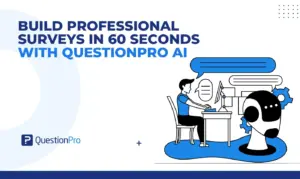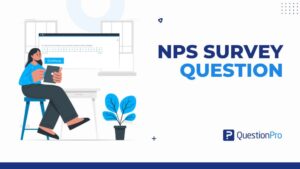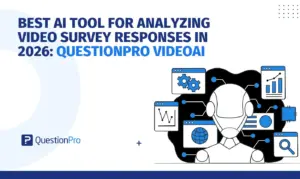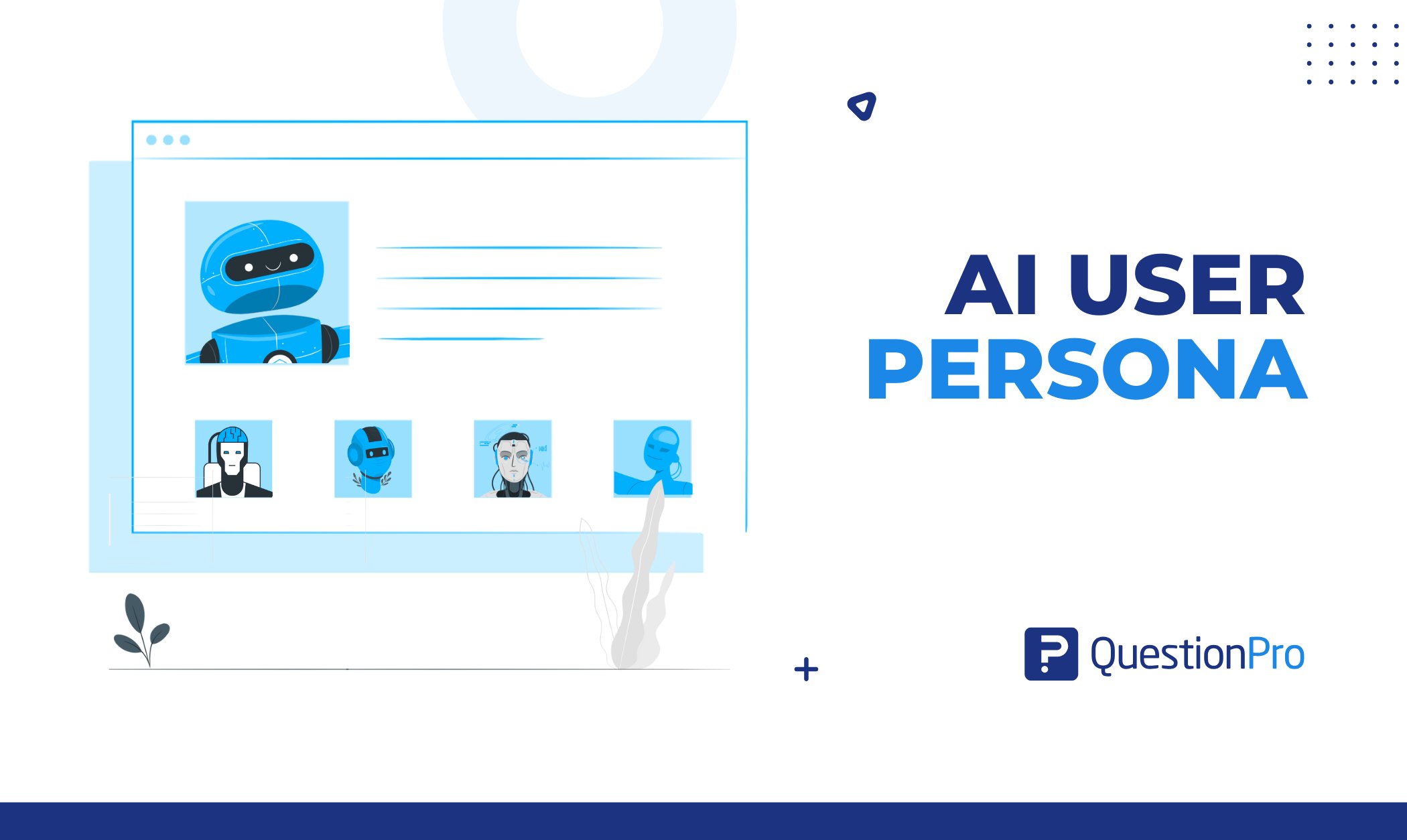
Market research and user insights are key to successful marketing. A powerful way to understand your audience is by creating user personas. While traditional personas were based on demographics and behavior, AI-powered persona generators now let you create detailed AI user personas faster, using real data for a deeper understanding of your users.
Whether you’re aiming to save time, develop ideal customer profiles, or refine your persona creation process, AI can revolutionize how you approach customer personas.
In this article, we’ll explain how to create AI user personas, explore use cases, and challenges for marketers seeking to understand diverse audiences and enhance customer experiences.
What is an AI User Persona?
An AI User Persona is a detailed, data-driven representation of a target audience created using artificial intelligence. It combines traditional demographic and behavioral data with insights gathered from real-world interactions, such as customer feedback, website analytics, and social media, to build a more accurate and dynamic profile of your users.
To create an AI User Persona, you typically start by gathering data from various sources, like:
- Surveys.
- Customer Interviews.
- Customer support.
- Feedback Forms.
- Social media.
AI tools then analyze this data, identifying patterns, behaviors, pain points, and motivations. These insights help build a more refined and personalized persona that can evolve as more data becomes available, offering a deeper understanding of your target audience.
Why Use AI to Create Personas?
AI is revolutionizing persona creation by making it faster, more accurate, and data-driven. Here’s why you should consider using AI for building user personas:
- Provides Real-Time, Data-Driven Insights: AI enables you to access actual data from multiple sources, delivering valuable insights into your target audience’s behaviors, preferences, and pain points.
- AI Saves Time: AI automates the persona creation process, reducing the time spent manually analyzing and segmenting customer data. You can quickly generate detailed personas based on a rich set of real-time information.
- It Can Improve Personalization: By analyzing data on motivations, behaviors, and interactions, AI enables the creation of more personalized and aligned personas that cater to specific user needs.
- Adapts to Changes in Behavior: Unlike static traditional personas, AI-powered personas can evolve as user behavior changes. Continuous data feeding ensures your personas remain relevant and adaptable to market shifts.
- Supports Better Decision-Making: With AI’s ability to identify trends and insights, you can make smarter decisions in marketing, product development, and customer engagement strategies.
Using AI for persona creation allows you to streamline your workflow, generate personas based on real, actionable data, and make more informed decisions for targeting diverse audiences.
How to Build an AI User Persona (Step-by-Step Guide)
Creating an AI User Persona involves using data sources, AI tools, and customer insights to build an accurate representation of your target audience. Follow these steps to create effective AI-driven personas:
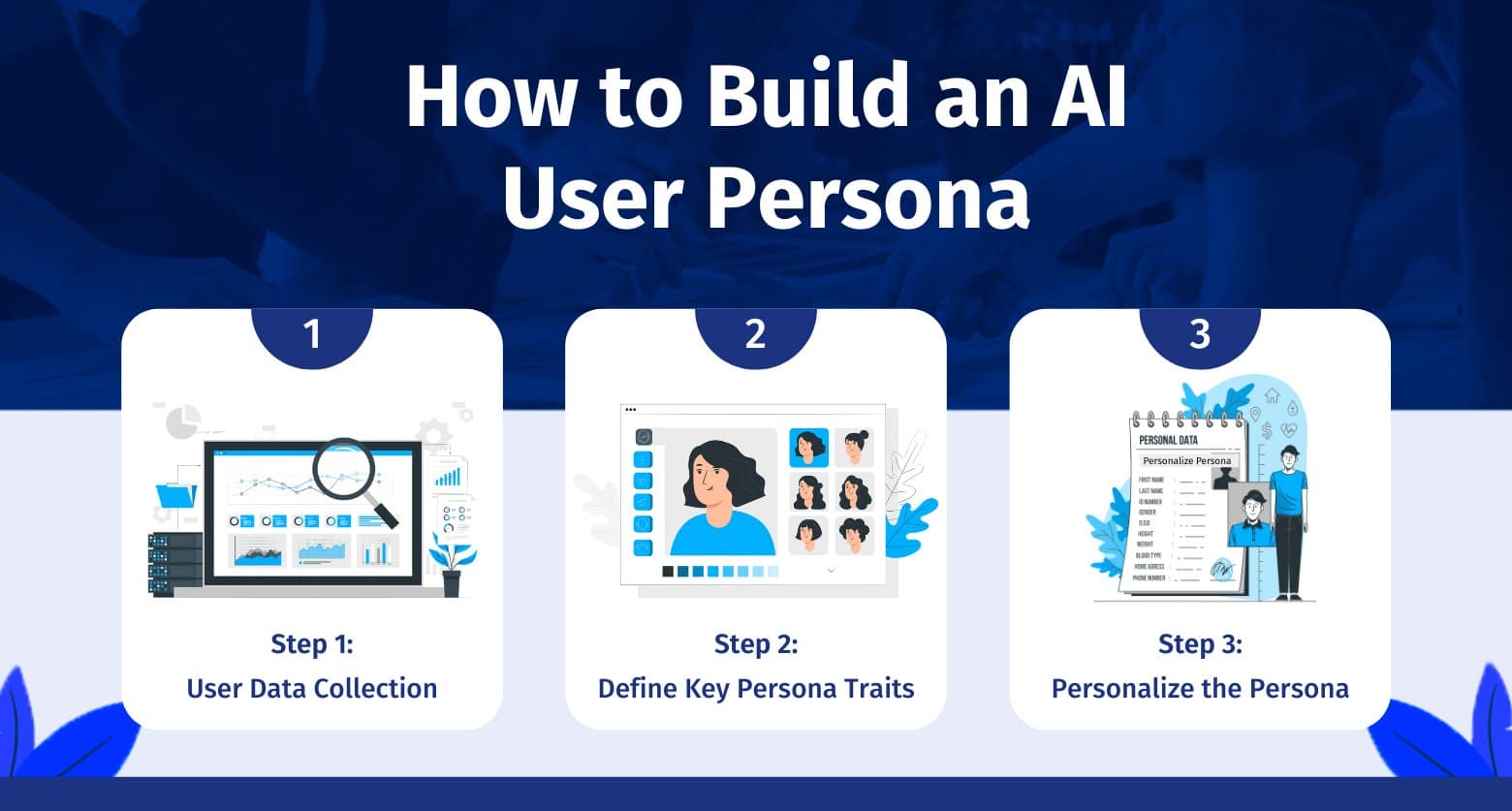
Step 1: User Data Collection
Collect data from multiple sources like customer feedback, social media, website analytics, and surveys. Use QuestionPro surveys to gain insights from your customers, or utilize QuestionPro Research data to understand user behaviors, preferences, pain points, and motivations. Once you have the data, analyze it to find patterns and trends in user behavior.
Ensure your survey encompasses a broad range of questions to gather comprehensive insights.
Step 2: Define Key Persona Traits
Now, define the essential traits of your persona based on the data analysis. These could be:
- Persona Name: Give your persona a relatable name (like “Tech-Savvy Tim”).
- Goals and Motivations: What does your persona want to achieve?
- Pain Points: What problems does your persona face?
- Behavior Patterns: How does your persona interact with your brand or product?
Step 3: Personalize the Persona
Use the insights to add personalization to your persona. Build the persona according to user-specific needs, challenges, and preferences. Consider segmenting your personas based on different characteristics like age, location, or buying habits to make them more relevant.
Following this step-by-step process, you can create accurate, data-driven AI user personas that reflect your ideal customer. These personas will provide valuable insights to inform better decision-making and more effective marketing strategies.
AI User Persona Use Cases and Real-World Examples
Real-life applications of AI user personas are transforming industries, enabling companies to make data-driven decisions and create more personalized experiences for their customers.
Netflix: Content Recommendations
Case Study: Netflix’s Personalization Engine.
Netflix uses AI to analyze viewing patterns, customer ratings, search behavior, and demographics to create AI-generated personas. These personas help personalize content recommendations for each user.
Impact: Approximately 80% of the content watched on Netflix comes from AI-driven recommendations, which increases user engagement, retention, and reduces churn.
Amazon: E-Commerce with AI Personas
Use Case: Amazon’s Recommendation System.
Amazon analyzes purchase history, browsing behavior, and search queries to create customer profiles. These personas help recommend products to individual needs.
Impact: Almost 35% of Amazon’s revenue comes from its recommendation engine, so AI-generated personas drive sales and customer experience.
Starbucks: Customer Loyalty
Case Study: Starbucks’ Loyalty Program.
Starbucks utilizes AI to analyze transaction data and customer interactions, creating detailed personas. These personas help personalize rewards and promotions.
Impact: The AI-driven loyalty program increased membership by 24% and in-store visits by 10%, resulting in improved customer retention and lifetime value.
These real-life examples show how AI user personas lead to more personalized experiences, higher customer engagement, and better business results.
How QuestionPro Can Help Build an AI User Persona
While AI user personas are built through machine learning models, QuestionPro helps you gather the data to build those personas. Here’s how QuestionPro can help:
1. Collecting Data Through Surveys
QuestionPro allows you to collect data from surveys, feedback forms, and market research. With well-crafted survey questions, you can capture user behaviors, preferences, and motivations.
Example: Use QuestionPro’s customizable survey templates to collect demographic, product feedback, and behavioral insights.
2. Analyzing and Segmenting Data
Once data is collected, QuestionPro allows you to analyze it and identify trends. The platform’s strong analytics and reporting tools help you segment users and get deeper insights into behaviors and preferences.
Example: Use QuestionPro’s segmentation feature to group users by preferences, buying habits, or stages in the customer journey.
3. Synthetic Survey Responses
QuestionPro also allows you to generate synthetic responses, simulating real-world data. QuestionPro’s AI generates synthetic data, fake but statistically accurate survey responses.
Example: Use synthetic responses to simulate different customer behaviors and refine your personas based on the results.
QuestionPro is a powerful tool for collecting and analyzing data to build AI user personas. By using its survey capabilities, segmentation tools, and continuous data collection features, you can create accurate and actionable personas.
Challenges to Overcome While Using AI User Persona
Creating AI user personas is powerful but comes with challenges and ethical considerations to be aware of.
- Data Privacy and Security: AI personas use personal data and mishandle it, and you’re in trouble. Get user consent before you collect.
- Data Bias and Fairness: AI models inherit biases from the data and make inaccurate or unfair predictions. Lack of diverse data creates stereotypes or exclusion.
- Transparency and Accountability: AI models are complex and hard to understand how personas are created. Lack of transparency reduces trust in the process.
- Over-Reliance on AI: Over-relying on AI personas may miss out on insights only human analysis can provide. AI should support, not replace, human judgment.
- Ethical Use of Synthetic Data: Synthetic data fills data gaps, but use it carefully. Overuse creates inaccurate personas that don’t reflect real-world behavior.
To create responsible AI personas, businesses need to address data privacy, bias, transparency, and synthetic datasets. By doing so, they can create fair, accurate, and actionable personas for better decision-making.
Conclusion
AI user personas are transforming the way businesses approach and engage with their customers. Through the article, we learned about AI user personas, how to create them, their use cases, and more.
However, creating responsible AI personas involves addressing challenges such as data privacy, bias, transparency, and ethics. By being aware of these challenges, businesses can ensure their AI-generated personas are not only accurate but also fair, inclusive, and representative of the diverse population they serve.
AI personas are no longer a luxury; they’re a must-have for better decision-making and deeper customer engagement.
FAQs(Frequently Asked Questions)
Answer: AI helps businesses create more accurate and personalized personas by analyzing large datasets. It saves time, adapts to changes in user behavior, and supports better decisions in marketing and product development.
Answer: AI analyzes user behavior, motivations, and interactions to create personas that reflect the unique needs and preferences of different customer segments.
Answer: QuestionPro helps collect relevant data through surveys, analyze and segment the data, and gather ongoing insights to refine AI personas.
Answer: Ethical concerns include data privacy, avoiding bias, maintaining transparency, and using synthetic data responsibly to ensure fairness and accuracy.
Answer: The future of AI in persona creation encompasses more personalization, predictive insights, enhanced automation, and more inclusive, ethical personas that enable businesses to connect with diverse audiences.




